Lázara's Dog
Sander, a man from Holland, took his vacation in Cuba and came to know Lázara, an older Cuban lady who lived in a makeshift home built on the rooftop of an 8 story building in Old Havana. To address housing shortages, many Cubans have built homes like this. They call them "azoteas." Lázara has a dog who reminds me lots of Aló Presidente, my favorite among the dozen animals who make Aniplant's headquarters their home. (See my blog, Aló Presidente, from 8/22/10.)
Sander felt the dog was being abused and needed help, and through our mutual friend, Nikki (see my blog, You Have to Love Nicole, from 9/17/10), we were asked to help this dog, and I translated a request to Nora Garcia to see what we could do. Sander was willing to bring the dog to Holland and keep him as his pet if that was best.
Nora, knowing there is no Cuban law against mistreating animals, decided to call on Lázara and make friends with her. Luckily, Lázara was already a fan of Nora's radio shows and recognized her when she came to her place. Nora was offering help with the dog in the form of parasite treatments, help with food supplies, etc. Sander's offer of adopting the dog was refused by Lázara, but Sander's assuming a Godfather's role to the dog was readily accepted. With a little discussion and a few emails back and forth, Lázara was happy to accept most of Sander's requests for a better life for the dog, which included:
--Nora will visit occasionally to check on him
--Nora can assist with supplies of dog food
--He will get parasite and vet medical attention as needed
--His sleeping area will be cleared of junk
--He'll get a nice pillow to sleep on
--He'll get occasional walks and a leash
As Sander said, "This dog is a sweetheart and deserves the best he can get."
All of these agreements were made except the one about walks. It is difficult for Lázara to use the 8 flights of stairs. No elevator is usual in Cuba where they work only occasionally or not at all. Dogs are less safe on the streets than in their homes. Nora agrees with eliminating the regular walks. With a little negotiation and a friendly, helpful approach, Nora accomplished lots of beneficial changes for the dog and a chance to check up on him. I think Sander is pleased with how it has worked out so far.
The dog needed help, and Sander knew it. We later learned that importing animals to the European Union is almost impossible because of chipping requirements and tough inoculation requirements. Microchips are unknown in Cuba.
There are 2 million people in Havana, and so many of them know Nora because of her radio shows teaching of humane treatment of animals. Lázara's dog is one more beneficiary of all that education work.
Les Inglis
Friday, September 30, 2011
Subscribe to:
Post Comments (Atom)













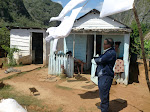




























































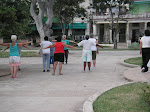
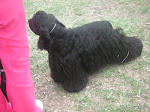
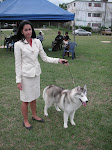


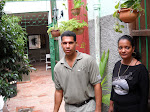




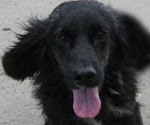
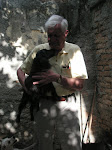



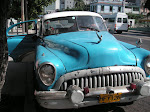

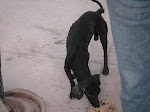


No comments:
Post a Comment